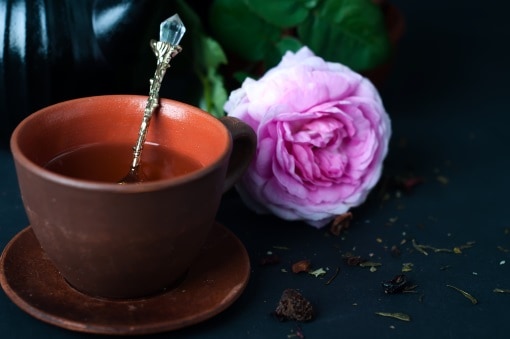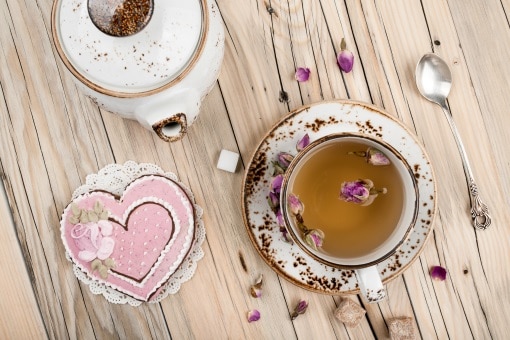No Results Found
The page you requested could not be found. Try refining your search, or use the navigation above to locate the post.
For purchases over 599 kr.
2 - 5 business days

Tea is the national drink of Egypt and has a special position that even coffee cannot compete with. In Egypt, tea is called “shai”.
The tea sold and consumed in Egypt is almost exclusively imported from Kenya and Sri Lanka.
The Egyptian government considers tea a strategic crop and operates large tea plantations in Kenya.
Green tea is a recent arrival in Egypt (only in the late 1990s did green tea become affordable) and is experiencing a slight increase in popularity.
Egyptian tea comes in two varieties: Kosher and Saiidi.
Kosher tea, popular in the lower north of Egypt, is made using the traditional method of brewing black tea using boiled water and simmering for a few minutes.
boiled water and simmering it for a few minutes.
It is typically served with milk and cane sugar, and is often flavored with fresh mint leaves.
Saiidi tea is common in the upper part of southern Egypt.
It is prepared by boiling black tea and water for up to 5 minutes over a strong flame.
Saiidi tea can be perceived by westerners as extremely heavy, which is partly due to the fact that two teaspoons of black tea per cup is the norm.
It is typically sweetened with copious amounts of cane sugar (a necessity as the formula and method produces a very bitter tea).
Saiidi tea is often black even in liquid form.
In addition to real tea, herbal teas (or tisanes) are often served in Egyptian teahouses with ingredients from mint to cinnamon and ginger to salep; many of these are attributed medicinal qualities or health benefits in Egyptian folk medicine.


Serving tea to guests is a regular part of the culture in Egypt.
The tea is characterized by being very ‘heavy’ and is typically made with two teaspoons per cup.
Adding sugar may be necessary, especially when drinking Saiidi tea, which can have a certain bitterness.
Tea plays an important role in daily Egyptian life, with many people starting the morning by drinking tea.
Drinking tea after lunch is also a tradition in many places.
If you’re visiting someone, you will be served a tea, regardless of their socio-economic status.
This is why tea is popularly nicknamed ‘Duty’, as serving tea to a visitor is a duty.
Egyptian teahouses also serve herbal teas and karkade (a hibiscus tea).
Karkady (also called karkaday) is the Arabic name for the red hibiscus.
Why the plantations of karkady are very popular in the upper areas of Egypt where the kilma is hot, especially areas around Aswan and Qena and in the Fayoum Oasis.
Egyptian tea is a little stronger.
Therefore, it is preferable to add two or three spoons of sugar, although some people prefer to drink it without.
The tea leaves are added directly to the cup and are therefore left at the bottom where they should be left.
The page you requested could not be found. Try refining your search, or use the navigation above to locate the post.

Although tea is a popular drink in Egypt, tea is not produced or manufactured in the country.
The reason for this is mainly the climate.
This is too dry to grow tea plants without extreme use irrigation.
Egypt’s very dry climate is partly due to the fact that most of the land area is occupied by the Sahara Desert, where there is virtually no significant rainfall.
The only significant agricultural areas in Egypt are found in a narrow corridor along the Nile Delta.
This agriculture is largely driven by irrigation from the river, precisely because rainfall in the region is minimal.
However, Egypt produces many herbs that are important in herbal teas.
Egyptian chamomile, in particular, is considered to be among the best forms of most palatable.
Egypt is also an important source of hibiscus for use in herbal teas.